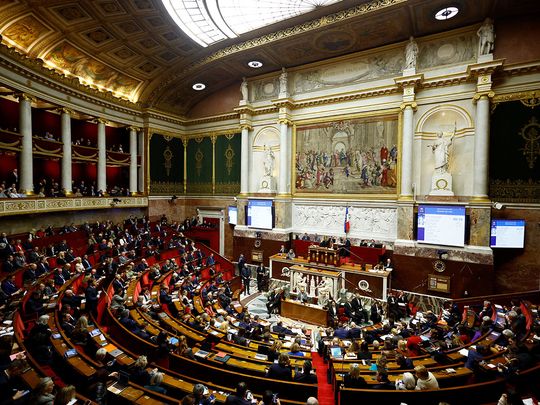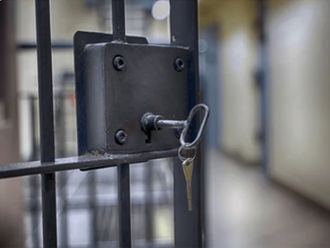
Paris: A group of French lawmakers struck a deal on Tuesday on a contested bill that will toughen immigration laws and has highlighted the difficulties for President Emmanuel Macron of running the country with no majority in parliament.
The deal - which needs to be confirmed by the two houses of parliament later on Tuesday - illustrates the rightward shift in politics in much of Europe, as governments try to fend off the rise of the far-right by being tougher on immigration.
The French government had initially said this would be a carrot-and-stick legislation that would make it easier for migrants working in sectors that lack labour to get a residency permit, but would also make it easier to expel illegal migrants.
But, in order to gain support from the right, the government agreed to water down the residency permits measures, while delaying migrants' access to welfare benefits - including benefits for children and housing allocations - by several years.
The latest deal also introduces migration quotas, makes it harder for immigrants' children to become French, and says that dual nationals sentenced for serious crimes against the police could lose French citizenship.
The deal, agreed by a special committee of seven senators and seven deputies, is good news for Macron, who had made the migration bill a key plank of his second mandate and could otherwise have had to shelve it.
But, just six months before European Parliament elections in which immigration will be key, it could also boost Marine Le Pen, who called the rejigged bill "a great ideological victory" for her far-right party - which the government denies.
The conservative Les Republicains, who have over the years hardened their discourse closer to that of the far-right, also claimed victory.
Macron won his two presidential mandates in 2017 and 2022 when voters rallied behind him to bar Le Pen from winning and leftwing MPs said the rejigged migration bill was a betrayal of promises made to fend off far-right ideas.
The left wing of Macron's own majority has expressed unease over some of the bill's more right-wing aspects and some may abstain or vote against the text when it goes through the two houses of parliament later on Tuesday.
Le Pen said her party would now back the text, which should ensure it will go through, barring surprises.
But the rebels could further weaken Macron's hold on parliament and potentially complicate the rest of his mandate.
Prime Minister Elisabeth Borne told parliament that the bill "will make our system more efficient because it will drastically simplify our procedures for processing asylum applications, (and) because it will make it possible to expel criminal or radicalised foreigners more quickly." Other governments across Europe are opting for tougher migration policies.
British Prime Minister Rishi Sunak said on Saturday that he would push for global reforms to the asylum system, warning the threat of growing number of refugees could "overwhelm" parts of Europe.








